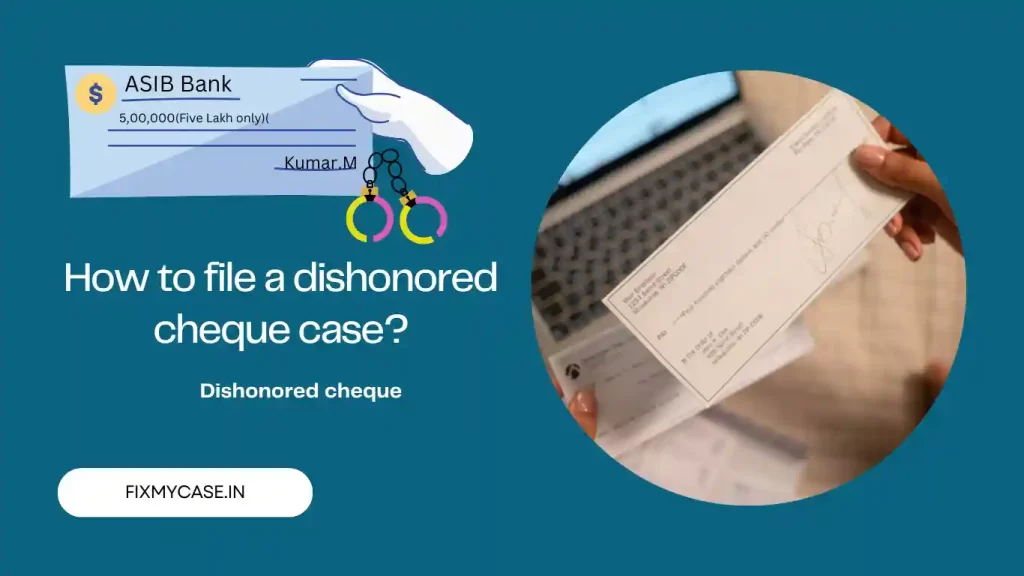How to file a dishonored cheque case?
To file a case for dishonored cheque in India, follow these steps:
Issuing a legal notice :
The first step is to issue a legal notice to the person who gave you the dishonored cheque, giving them an opportunity to pay within a specified time, usually 15 days. The legal notice should clearly state the reason for the notice, the amount due and the consequences of non-payment.
Filing of Complaint :
If payment is not made within the given time limit, you can file a complaint under Section 138 of the Negotiable Instruments Act, 1881. This Act covers cases of dishonored checks in India.
Jurisdiction and Court :
A complaint for dishonor must be filed in the appropriate jurisdiction where the check is issued for payment. The court having jurisdiction, depending on the amount mentioned in the cheque, shall:
A. Rs. 20 lakhs: Complaint can be filed in the court of Metropolitan Magistrate or First Class Judicial Magistrate.
B. Rs. 20 lakhs: Complaint should be filed in Sessions Court.

Documents required :
While filing the complaint, you need to provide the following documents :
A. Original check and courtesy note issued by the bank.
B. Copies of published legal notice and postal receipt.
c. Affidavit of the person who presented the cheque, the payment was not paid despite giving legal notice.
Procedure :
The court will issue a summons to the person against whom the complaint is made to appear before the court. If the accused fails to appear, the court may issue a bailable warrant or a non-bailable warrant depending on the circumstances.
Hearing and Judgment :
The court will then proceed with the hearing, allowing both the complainant and the accused to present their evidence and witnesses. If the court finds the accused guilty, they may be fined and/or imprisoned, and the complainant may be awarded compensation.
It is advisable to consult an attorney who specializes in dishonored cheque cases to guide you through the legal process and ensure compliance with all legal requirements and procedures.